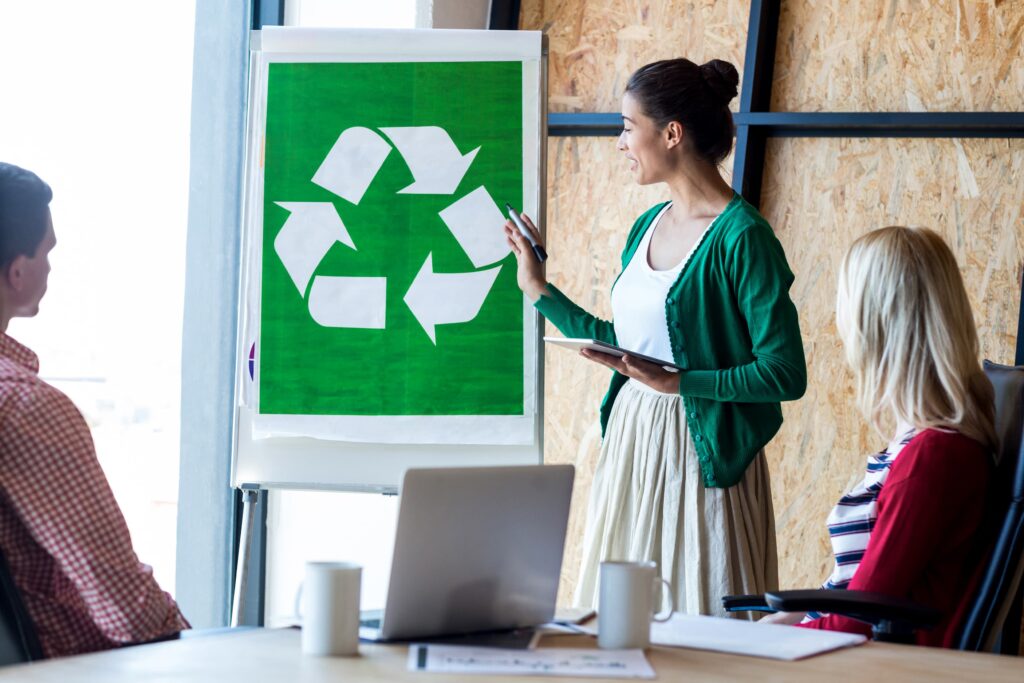In this day and age, sustainability and environmental consciousness is increasingly important. When your home electronics reach the end of their lives, you should think of how to dispose of them properly. Whether you know it or not, there are many things in your home that can be recycled, especially your everyday electronics.
Electronics contain valuable materials such as metals, plastics, and rare earth elements. Also, they can harbor hazardous substances like lead, mercury, and cadmium. Improper disposal of these devices can lead to harmful pollution and pose health risks to communities and ecosystems.
So, recycling your electronics is crucial for sustainability as it conserves resources, reduces the need for raw materials extraction, and minimizes the harmful impacts of electronic waste. In this blog, we’ll uncover nine common household electronics that can be recycled so you can contribute to a greener future.
Let’s dive in!
Common Recyclable Electronics in Your Home

Electronics have become indispensable tools for convenience, entertainment, and connectivity in our homes. However, as we upgrade to newer models or simply outgrow older electronics, the disposal of these devices becomes a pressing concern.
On average, we produce 50 million tons of e-waste each year which is equivalent to throwing out 1,000 laptops every second. Fortunately, many of these electronics can be recycled, offering an environmentally responsible solution to the growing problem of electronic waste.
From smartphones and laptops to televisions and kitchen appliances, these common household items contain valuable materials that can be recovered and reused through proper recycling processes. In the following section, we’ll explore nine such electronics commonly found in homes that can be recycled.
1. Smartphones and Tablets
These everyday gadgets, like smartphones and tablets, eventually wear out from constant use or newer models hitting the market. However, they’re filled with valuable materials like metals, plastics, and glass that can be recycled into new things. While you can donate or sell these devices, they will eventually reach the end of their lives, and this is where a certified electronics recycler comes in.
2. Laptops and Computers
With rapid advancements in technology, many people upgrade their computers frequently, leaving old laptops and desktops unused. Recycling these electronics keeps them out of landfills and allows valuable metals such as gold, silver, and copper to be recovered. Almost every computer part can be recycled, so consider finding a certified electronics recycler to dispose of them properly.
3. Televisions and Monitors

As technology advances, older TVs and monitors get replaced with newer, more energy-efficient versions. But, it’s important to know that these things can be recycled, and it is illegal to throw them away in the garbage when they reach the end of their lives.
4. Printers and Scanners
Printers and scanners are common in homes and offices, but when they break or become outdated, they add to electronic waste. Recycling these devices ensures that valuable parts like plastics and metals get reused. Also, you may note that many printer manufacturers offer buyback and printer recycling programs, so you can consider sending it back to promote a more circular economy.
5. Large Kitchen Appliances
If you can’t donate or sell your appliances, refrigerators, microwaves, and dishwashers have celectronic parts that can be recycled. By properly disposing of these appliances, you can prevents harmful substances from polluting the environment and allow for valuable materials to be reused.
6. Gaming Consoles
Gaming consoles are popular entertainment devices, but like other electronics, they eventually become obsolete or malfunction. Recycling gaming consoles helps to reduce electronic waste and recover materials like plastics, metals, and circuit boards.
7. Cameras and AV Equipment

Cameras contain components such as lenses, sensors, and circuit boards, while AV equipment and surround-sound systems like video recorders and audio systems often have plastic casings, metal components, and electronic circuitry. Recycling these devices ensures that these valuable materials are reused and prevents them from ending up in landfills.
8. Small Kitchen Appliances
Even your small kitchen appliances can be saved from the landfill! If they still work, consider donating them to a thrift store to give them another life. If not, devices like coffee makers, toasters, and blenders contain electronic components that can be recycled.
9. Home Entertainment Devices
With the rise of streaming services, DVD and Blu-ray players are becoming less and less relevant as technology advances. Instead of tossing them, you can clear space in your home by finding an electronics recycler that will handle it for you.
How to Recycle Electronics
Now that you know some of the things that can be recycled in your home, it’s time to discuss how to dispose of them responsibly.
Drop-off Locations
Many communities offer drop-off locations or collection events where you can dispose of your electronics for recycling. These locations are often operated by local governments, electronic retailers, or recycling centers. Check with your municipality or electronic manufacturers for information on drop-off locations near you.
Mail-in Programs
Another option for recycling electronics is through mail-in programs provided by certified recyclers or electronic manufacturers. These programs allow you to send your old devices by mail to be recycled responsibly. Be sure to research reputable mail-in programs and follow their instructions for packaging and shipping your electronics securely.
Tips for Recycling Your Electronics

When it comes time to recycle your devices, there are a few things you should keep mind. Let’s go over them now.
Choose a Certified Recycler
Opt for a certified electronics recycler that adheres to industry standards and regulations for responsible recycling practices. Look for certifications such as R2 (Responsible Recycling) or e-Stewards, which guarantee ethical and environmentally sound recycling processes.
Data Security Measures
A trustworthy electronics recycler will prioritize data security by implementing stringent data wiping protocols. They will ensure that all personal data and sensitive information stored on your devices are securely erased using certified data wiping software or physical destruction methods.
Safe Disposal Procedures
Electronics recyclers employ safe disposal procedures to minimize environmental impact and prevent hazardous materials from contaminating the environment. They disassemble electronics and separate components for recycling, ensuring that valuable materials like metals, plastics, and circuit boards are recovered and reused.
So, don’t toss your broken or outdated devices in the trash! Recycle them to give them another life.
It’s a win-win for you and the planet!
Recycle Your Devices With Great Lakes Electronics
When it comes to recycling electronics responsibly and securely, Great Lakes Electronics stands out as a trusted partner. With our commitment to ethical recycling practices and stringent data security measures, we ensure that your old electronics are disposed of safely while safeguarding your sensitive information.
Our certified recycling processes guarantee compliance with industry standards and environmental regulations, giving you peace of mind knowing that your devices are being recycled responsibly. Whether you choose to drop off your electronics at one of our convenient locations or utilize our pickup services, Great Lakes Electronics makes recycling easy and hassle-free.
Join us in our mission to promote sustainability and data security by recycling your electronics with Great Lakes Electronics. Visit our website to request a quote today!

